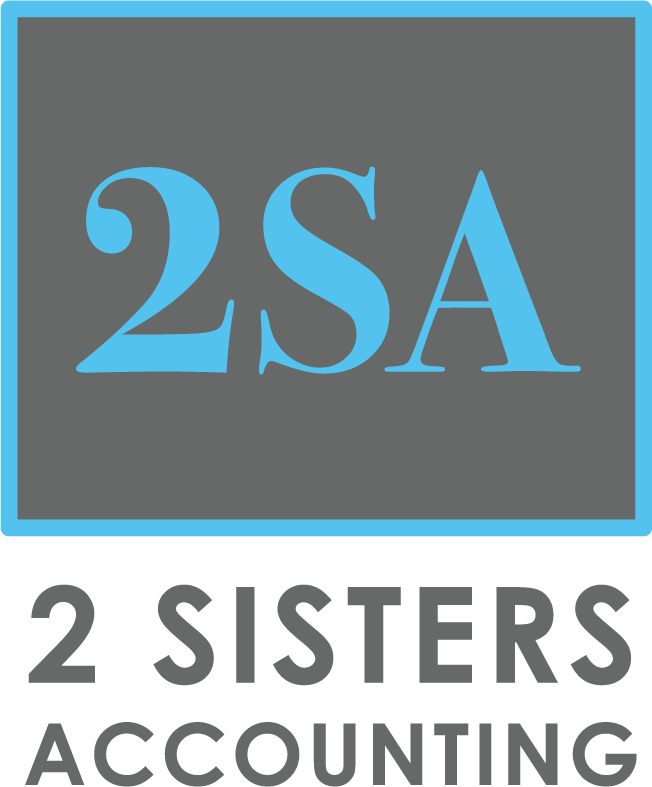
How to Pay Yourself Tax Efficiently as a Director of a Limited Company | 2 Sisters Accounting
Many limited company directors ask the same question: how should I pay myself to be as tax efficient as possible? Talking about tax-efficient pay for limited company directors is a big topic, one that affects your take-home pay, your business’s tax position, and your long-term financial goals. At 2 Sisters Accounting, we’ve been having lots of conversations about this recently, and we thought it would be helpful to share the exact approach we use ourselves, because we know that you want to know the best way to pay yourself from a limited company.
In this blog, you’ll learn how to choose a personal income level that keeps you in the most tax-efficient bracket, including why we set our director pay at £50,770 per year. We’ll break down how we combine limited company director salary and dividends to stay within the basic tax band, and what to do with extra profits that don’t need to be taken out immediately.
We’ll walk you through different options for reinvesting profits, from high-interest savings to pension contributions that help lower your Corporation Tax bill. You’ll also find out how to take advantage of the Employer’s Allowance if you employ someone else, and how to use our downloadable calculator to model your pay and tax bill over the year.
Whether you’re looking to tighten up your small business tax strategy, reduce your business’s overall tax burden, or simply plan ahead more clearly, this guide is here to help with your corporation tax planning.
Why Tax-Efficient Pay Matters for Limited Company Directors
If you’re running a limited company, the temptation can be to pay yourself every available penny. It’s your money, after all, so why not take it? The problem is, doing so often results in a higher personal tax bill and a less efficient business overall. It’s easy to overlook the benefits of strategic planning when there’s a bank balance staring you in the face.
The Cost of Taking Too Much
Every additional pound you take out beyond a certain threshold can push you into higher tax bands meaning you keep less of it in your pocket. What feels like a reward for your hard work can actually lead to unnecessary costs. Plus, larger personal income can affect everything from student loan repayments to child benefit eligibility and mortgage assessments. Here’s HMRC’s guidelines regarding Tax on Dividends
The Value of Holding Back
Paying yourself efficiently means finding the sweet spot between what you need and what keeps your tax liability low. When you can take a step back and separate your business finances from your personal wants, you unlock the potential to build stability and wealth inside your business. That might mean leaving surplus funds in the company for investments, short-term savings, or pension contributions that reduce your Corporation Tax bill. Read about our Annual Company Accounts services here.
Sometimes, your lifestyle needs might outweigh the benefits of a tax-efficient strategy, and that’s completely valid. But where you do have flexibility, deliberate planning can save you and your business a significant amount in tax over time.
The £50,770 Strategy Explained
At 2 Sisters Accounting, we’ve built our own director pay strategy around a clear goal: to maximise efficiency without sacrificing financial security. We pay ourselves £50,770 per year because this figure sits neatly at the top of the basic rate (20%) income tax band. By stopping there, we avoid triggering the higher rate of income tax meaning we keep more of what we earn.
Here’s how we do it: we take a small salary, often set below the personal allowance threshold, which keeps our PAYE obligations low. The rest of our income comes from dividends, which are taxed at a lower rate than salary. Because dividends are paid from profit after Corporation Tax, it’s essential that the business has available profit so this method only works when your company is financially healthy.
The benefit? We get everything we need to live on while leaving more money inside the business. This opens up options to invest in growth, contribute to pensions, or save for future plans. We also avoid overpaying tax on money we don’t need to spend.
If you’re in a similar position, where your lifestyle doesn’t require a higher income, this approach can help you stretch every pound your business earns that little bit further. And with a good handle on your profit, you can adjust your strategy over time as your needs change.
What to Do with Surplus Business Profits
Not drawing all the company’s profit doesn’t mean the money sits idle. Here’s what we do with any surplus:
Investment Funds in the Business Name
If we don’t need the money in the short term, we invest it through a business investment account. That keeps it working for us without increasing our personal tax liability.
High-Interest Savings for Short-Term Goals
For shorter-term savings like planning for VAT, corporation tax, or large business purchases we use a high-interest business savings account. This helps our cash earn interest while remaining accessible.
Pension Contributions to Lower Corporation Tax
We also contribute to our pensions through the business. These contributions reduce our Corporation Tax bill and help build our retirement savings at the same time. Just make sure you stick within pension contribution limits and rules.
Take Advantage of the Employer’s Allowance
If you’ve got at least one other employee on the payroll, you could qualify for the Employer’s Allowance. That means you won’t have to pay Employer’s National Insurance on your salary which can save your business up to £5,000 a year. Our calculator takes this into account too.
Model Your Pay with Our Tax Calculator
We’ve created a downloadable calculator to help you figure out your own optimal pay structure. You just pop in your company’s profit figures, and the tool shows your estimated Corporation Tax, dividend tax, and personal tax bills.
You can also adjust the dividend amount to see how different choices affect your overall tax position, ideal for directors who want to plan ahead or test different scenarios.
Final Thoughts: Make Your Business Work for You
There’s no one-size-fits-all approach to director pay but if your business is profitable and your lifestyle doesn’t require a high personal income, there are smart ways to make the most of what you earn. At 2 Sisters Accounting, we’ve found that paying ourselves £50,770 each year, using a mix of salary and dividends, allows us to avoid higher-rate income tax while keeping funds available in the business for savings, investment, or pension contributions.
By understanding how tax bands work, making the most of employer allowances, and using tools like our tax calculator, you can take control of your finances and make confident, informed decisions all year round.
If you’d like personalised advice or want help applying this strategy to your own business we’re here to help. Book a call with us today and let’s make your business money work harder, smarter, and more efficiently for you.

